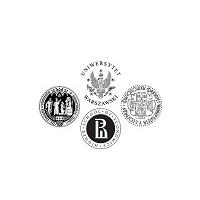Dr Dragana Grbić
Dragana Grbić is a Lecturer in Serbian and Croatian Language, Literature and Culture. She graduated from the University of Belgrade and obtained her M.A. from the same university with a thesis on allegory in Baroque literature. In 2016, she became the first scholar to gain a German-Serbian co-tutela PhD. Her thesis on Dositej Obradović and his European contexts was rewarded a summa cum laude degree in Belgrade and at the Martin Luther University Halle-Wittenberg. From 2006 until 2017, she worked at the Institute for Literature and Arts (IKUM) in Belgrade. In 2018/2019, she taught as deputy professors at the Seminar for Slavic Studies at Martin Luther University of Halle-Wittenberg. Her work in archives and libraries with special collections for the seventeenth, eighteenth and nineteenth centuries has been supported by scholarships from the Fritz Thyssen Foundation, the German Academic Exchange Service (DAAD), the Francke Foundation, the Interdisciplinary Centre for European Enlightenment Studies, the Austrian Academic Network (OeAD) and the World University Service (WUS).
Research on the European Enlightenment
Maintaining a comparative approach to Slavic literatures, Dragana Grbić’s research focusses on literary and cultural history, in particular on the key ideas of the Enlightenment, i.e. critical thinking, religious tolerance and the democratization of knowledge in the Balkans as they are preserved in autobiographies, memoirs, travelogues and letters.
Dragana Grbić has prepared editions of archival materials in Church Slavic, including its Serbian and Russian versions, and in Slavonic-Serbian. The editions concern the religious enlightenment, the history of science (primarily physics and astronomy) as well as history and literary history of the eighteenth and nineteenth centuries. Her interdisciplinary approach is based on the methodological frameworks of different disciplines that she has acquired in addition training. In 2005, she completed the Astronomy Seminar at the Roger Boscovich Astronomical Society in Belgrade and subsequently participated in summer schools for astronomical observations. Between 2006 and 2011, she was an active member of the Centre for Depth Psychology and Dream Analysis in Belgrade. She obtained a palaeography certificate of the August Hermann Francke Study Centre in Halle for skills in reading and editing the eighteenth century Kurrent (German cursive). In 2017, she was invited by the Ivo Andrić Endowment to participate in the publication of the critical and commented edition of Ivo Andrić’s works and prepared a volume of short stories.
Combining Research and Innovative Teaching
Between 2012 and 2017, she was the organizer and principal lecturer of the International Summer School of Translation, Cultural History and Serbian Language in Tršić with over 90 participants from 17 universities in ten European countries. In the frame of the DAAD-funded project Rethinking the Impact of Liberal Arts (2018–2020) she organised the conferences on Dialectic, Grammar, Arithmetic, Geometry and, together with Dr Kamelia Spasova, on Astronomy. The conference “Grammar” was combined with a Summer School of Text Editing and Translation in Belgrade and Tršić that was attended by students from nine European universities.
Memberships
- Editorial board of The World of Words [Svet reči], the journal for literature and language published by the Society for Serbian Language and Literature of Faculty of Philology in Belgrade (since 2008)
- Editor-in-chief of “Dositejev vrt”, a journal for eighteenth century literature and culture published by the Dositej Obradović Endowment (since 2016)
- Directorate of the Dositej Obradović Endowment in Belgrade
- Jury for the Dositej Obradović Endowment award, “Iduć’ uči, u vekove gleda” (2014–2017)
- Board of the DAAD-alumni club Belgrade (since 2014)
- Matica Srpska Literature and Language Committee board in Novi (since 2016)
Dragana Grbić is further an active member of the International (ISECS), Austrian (SOG), German (DGEJ18), British (BSECS), Bulgarian, and South Slavic Societies for the Study of the Eighteenth Century as well as a member of the British Association for Slavonic and Eastern European Studies (BASEES).
For contact information and current office hours please consult Dragana Grbić’s page at the Slavic Institute.
